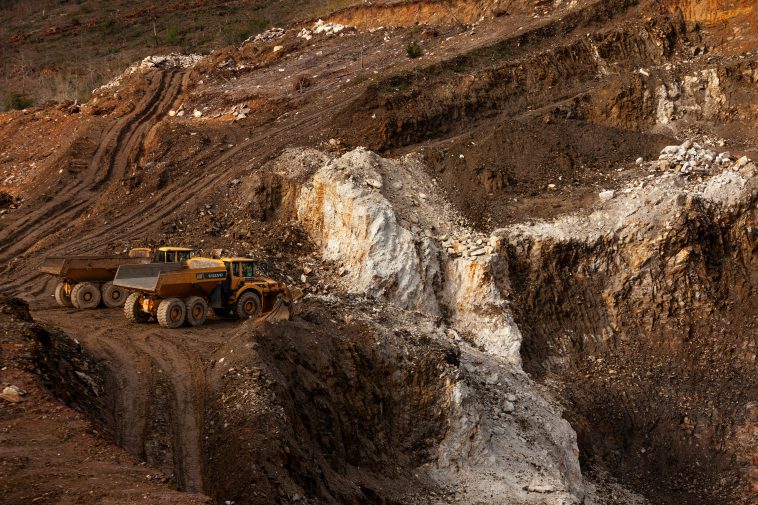Chinese miners and refiners are propelling a significant increase in African lithium production, dismissing worries about an oversupply as they secure future access to this essential battery metal. According to S&P Global Commodity Insights, Africa is expected to contribute nearly 11% of global lithium supply this year, a substantial rise from almost nothing at the start of the decade. This share is anticipated to grow further, exceeding 14% by 2028.
The surge in lithium prices during 2021 and 2022 triggered a wave of investment by Chinese companies in African lithium production. However, the price of lithium has since dropped by more than 80% due to increased supply and slower-than-expected sales of electric vehicles.
Despite a predicted global production surplus this year, China, which is responsible for producing most of the world’s lithium chemicals, continues to increase its refining capacity and is becoming more reliant on sourcing materials from abroad, according to Claudia Cook, an analyst at Benchmark Mineral Intelligence. “As resistance to Chinese involvement in lithium projects in the Western world grows, Africa is in a strong position to fill this feedstock gap,” she said.
Zimbabwe accounts for more than two-thirds of the continent’s lithium output, with Chinese companies such as Zhejiang Huayou Cobalt, Sinomine Resources Group, and Chengxin Group investing billions of dollars in commissioning mines and processing plants. Additionally, Chinese-backed companies are advancing projects in Mali, Namibia, and Nigeria.
Across Africa, 15 mines currently under development or expansion are expected to be operational by 2030, according to Lukasz Bednarski, S&P’s principal research analyst for lithium and battery metals. He noted that most of these projects are “sustainable,” even at current price levels. “There has been really significant growth in the last three years,” Bednarski said.
The new capacity is expected to come online as the market is anticipated to shift back to a deficit, following a peak in global lithium surplus projected for 2027, according to Benchmark.
While production from Zimbabwe is more transparent due to the presence of industrial mines, tracking supply from countries like Nigeria—where lithium ore has been extracted using rudimentary tools—remains challenging. Nigeria was the second-largest source of African lithium over the past year and a half, according to Thomas Matthews, a battery metals analyst at CRU Group.
More than half of Africa’s lithium production last year originated from hand-dug or small-scale activities, Matthews noted. However, this is expected to change, as “growth in output from industrial operations is predicted to surpass informal activity,” he said.
In May, Nigeria inaugurated its first lithium processing facility, marking the beginning of several other China-backed projects under development as the government aims to regulate the lithium trade and maximize revenue. According to Matthews, low-grade lithium material from Africa accounted for over a quarter of China’s lithium imports on a metal contained basis during the first half of this year.
Western companies are also eyeing African lithium opportunities. Atlantic Lithium, a Sydney-registered company, is constructing Ghana’s first lithium mine, which will supply concentrate to the US, allowing it to benefit from tax credits introduced by President Joe Biden. Meanwhile, London-listed Andrada Mining and Canada’s Tantalex Lithium Resources are working on projects in Namibia and the Democratic Republic of Congo, respectively.
British businessman Algy Cluff, known for pioneering the UK’s offshore oil and gas industry in the 1970s, and Australian entrepreneur Hugh Morgan, who once led a copper and nickel mining company acquired by BHP Group for A$9.2 billion two decades ago, are also targeting significant lithium production in Zimbabwe and Nigeria.
While Australia, Chile, and China are projected to account for about 70% of global lithium supply this year, African mines are expected to help reduce their share to just over half by the end of the decade, according to Benchmark’s Cook.





